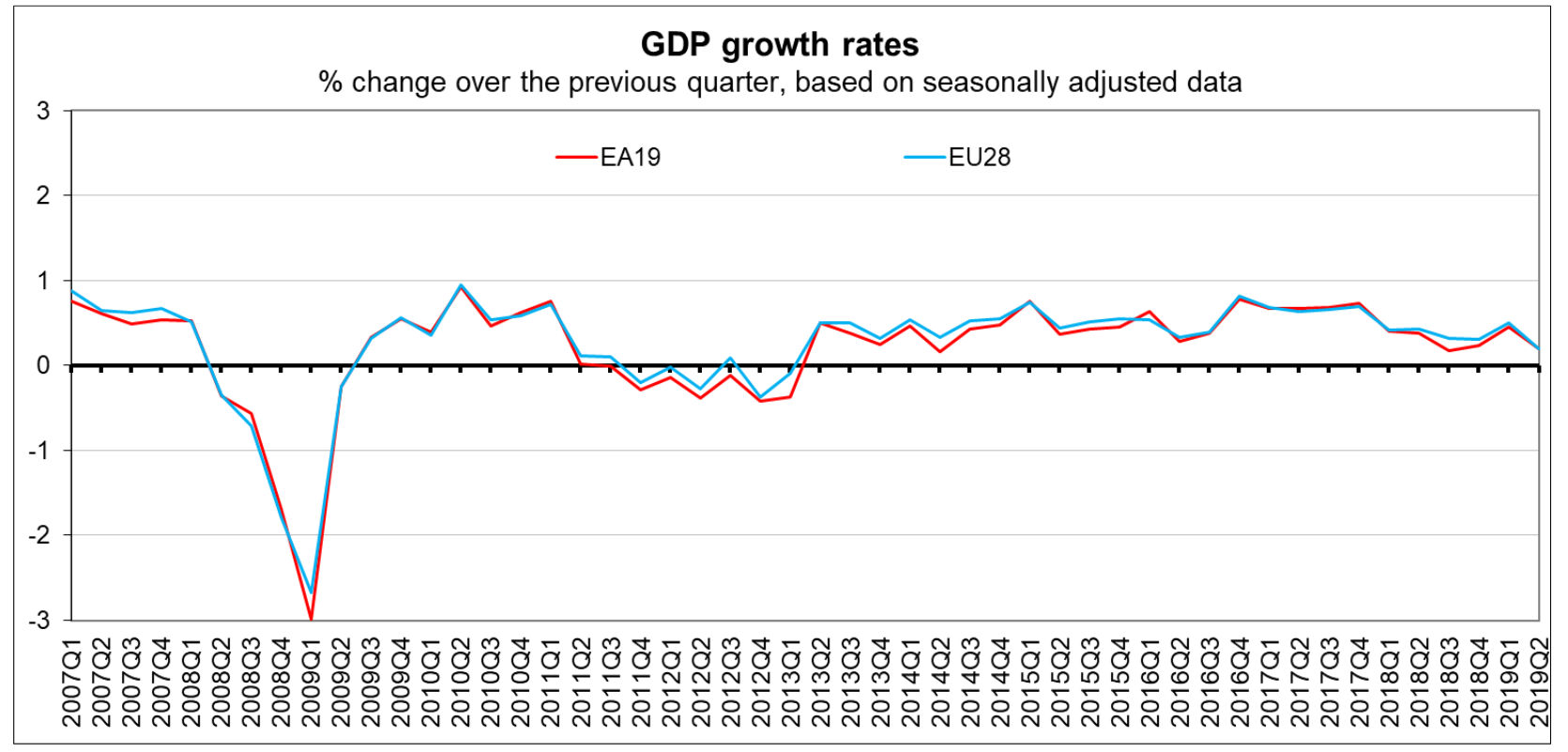Seasonally adjusted Gross Domestic Product (GDP) rose by 0.2% in both the Eurozone (EA19) and the European Union (EU28) during Q2 2019, compared with Q1 2019, according to a preliminary estimate published by Eurostat. Quarterly growth is now slowest in 5 years.

In Q1 2019, GDP had grown by 0.4% in the Eurozone and by 0.5% in the European Union. Compared with Q2 2018, seasonally adjusted GDP rose by 1.1% in the Eurozone and by 1.3% in the European Union in Q2 2019. In the previous quarter, annualized GDP had grown by 1.2% in the Eurozone and by 1.6% in the European Union.

Unemployment at 11 year low but slowing inflation
Eurozone unemployment hit a 11-year low at 7.5% at the end of June 2019.
Year-on-year inflation is currently just 1.1%, at a 17-month low and much lower than the European Central Bank’s (ECB) target of close but below 2%.
Stimulus ahead?
Outgoing ECB President Mario Draghi last week said that the bank will look to ease policy further at the September meeting as the growth outlook deteriorates quickly.
The market expects an interest rate cut in September and Quantitative Easing to resume. Negative interest rates ahead …
The Eurozone or Euro area (EA19) currently includes Belgium, Germany, Estonia, Ireland, Greece, Spain, France, Italy, Cyprus, Latvia, Lithuania, Luxembourg, Malta, the Netherlands, Austria, Portugal, Slovenia, Slovakia and Finland.
The European Union (EU28) currently includes Belgium, Bulgaria, Czechia (formerly the Czech Republic), Denmark, Germany, Estonia, Ireland, Greece, Spain, France, Croatia, Italy, Cyprus, Latvia, Lithuania, Luxembourg, Hungary, Malta, the Netherlands, Austria, Poland, Portugal, Romania, Slovenia, Slovakia, Finland, Sweden and the United Kingdom.
Related:
U.S. Q2 2019 GDP growth estimated at 2.1% as personal consumption soars